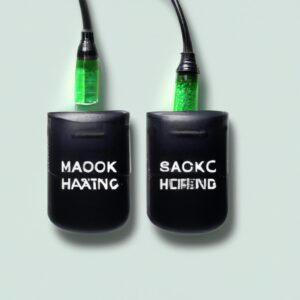**”Trail Running Gear Essentials: What to Pack for Safety and Comfort on Remote Trails”**
Trail Running Gear Essentials: What to Pack for Safety and Comfort on Remote Trails
Trail running offers a unique way to connect with nature while challenging your body and mind. However, heading out on remote trails comes with its own set of risks and challenges. Therefore, having the right gear is essential for both safety and comfort. In this blog post, we will explore the essential items you should pack for a successful trail running experience, along with some nutrition tips and health benefits of this invigorating sport.
The Right Footwear: Your Foundation
Trail Running Shoes
When it comes to trail running, your choice of footwear is crucial. Trail running shoes are specifically designed with rugged soles that provide traction on uneven terrain. Moreover, they often feature extra cushioning to absorb impact and protect your feet from sharp rocks and roots. It’s worth investing in a pair that fits well and suits your running style.
Gaiters
On the other hand, if you plan to run in muddy or loose conditions, consider adding gaiters to your gear list. These handy accessories keep debris, dirt, and small stones out of your shoes, thereby enhancing your overall comfort. As a result, you can focus on your run without the distraction of irritants in your footwear.
Hydration: Staying Refreshed
Hydration Packs vs. Water Bottles
Hydration is essential, especially when you’re miles away from any water source. Consequently, you’ll want to choose the right hydration method for your trail run. Hydration packs are a popular choice, offering hands-free convenience and the ability to carry additional gear. Alternatively, water bottles can be lightweight and easy to refill, but require you to stop more frequently to drink.
Electrolyte Supplements
In addition to water, consider packing electrolyte supplements. These can help replenish lost minerals during long runs, particularly in hot weather. There are various options available, from powders to tablets, making it easy to find one that suits your taste and needs.
Clothing: Dress for Success
Moisture-Wicking Fabrics
Your choice of clothing can significantly affect your comfort level on the trail. Therefore, opt for moisture-wicking fabrics that help keep you dry by pulling sweat away from your skin. Lightweight layers are ideal, allowing you to adjust your clothing based on changing weather conditions.
Weather Gear
Moreover, it’s wise to pack a lightweight, packable rain jacket, even if the forecast looks clear. Weather can change rapidly in remote areas, and being caught in the rain can lead to discomfort or even hypothermia in cooler temperatures. Therefore, prepare for the unexpected by having appropriate outerwear on hand.
Safety Gear: Be Prepared
Navigation Tools
When venturing into remote trails, having reliable navigation tools is imperative. A GPS watch or smartphone app can guide you along your route, but it’s also a good idea to carry a physical map and compass as a backup. In addition, familiarize yourself with the trail before setting out to increase your confidence and awareness of the area.
First Aid Kit
Furthermore, a compact first aid kit should be part of your trail running essentials. Basic items like adhesive bandages, antiseptic wipes, and blister treatment can make a significant difference in the event of minor injuries. Consequently, being prepared can help you tackle any unforeseen issues without cutting your run short.
Nutrition Tips for Trail Running
Pre-Run Fuel
Before hitting the trails, it’s crucial to fuel your body with the right nutrients. A balanced meal rich in carbohydrates and protein, consumed about an hour before your run, will provide sustained energy. For example, oatmeal with fruits or a whole-grain sandwich with lean protein can be excellent options.
On-the-Go Snacks
During your run, consider carrying energy gels, bars, or trail mix to keep your energy levels up. These snacks are convenient and easy to digest, ensuring you won’t run out of steam. However, remember to practice with these snacks on shorter runs to see what works best for your digestive system.
Health Benefits of Trail Running
Physical Fitness
Trail running is not only a fantastic way to experience nature but also offers numerous health benefits. Regularly engaging in this activity enhances cardiovascular fitness, improves muscle strength, and boosts endurance. Moreover, the varied terrain challenges different muscle groups, making each run a unique workout.
Mental Well-Being
In addition to physical benefits, trail running can significantly improve your mental health. The combination of exercise and nature exposure leads to reduced stress, anxiety, and depression. Consequently, many runners find that spending time on the trails provides a sense of peace and clarity.
Conclusion
When preparing for a trail run, packing the right gear is essential for both safety and comfort. From appropriate footwear and hydration tools to clothing and safety gear, each item plays a vital role in your experience. Furthermore, considering nutrition and the health benefits of this sport can motivate you to hit the trails more often. Therefore, take the time to prepare adequately, and you’ll be well on your way to enjoying the beautiful, invigorating world of trail running. Happy trails!
FAQ
What type of shoes should I wear for trail running?
For trail running, it’s essential to wear trail running shoes that are specifically designed for rugged terrain. These shoes typically feature rugged soles for better traction, extra cushioning to absorb impact, and added protection against sharp rocks and roots. Investing in a pair that fits well and suits your running style will enhance your comfort and safety on the trails.
How can I stay hydrated while trail running?
Staying hydrated is crucial during trail runs, especially when you’re far from water sources. You can choose between hydration packs, which offer hands-free convenience and extra gear storage, or lightweight water bottles, which are easy to refill but may require more frequent stops. Additionally, consider packing electrolyte supplements to replenish lost minerals, particularly during longer runs or in hot weather.
What should I pack in my first aid kit for trail running?
A compact first aid kit is vital for addressing minor injuries during trail runs. Essential items to include are adhesive bandages, antiseptic wipes, and blister treatment supplies. Being prepared with these basic items can help you manage unforeseen issues without having to cut your run short, ensuring a safer and more enjoyable experience on the trails.















Post Comment